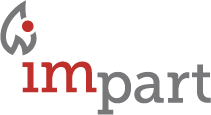IMPART app can help save billions in health care: TelegraphJournal
ROBERT WILLIAMS TELEGRAPH-JOURNAL
SAINT JOHN • A research group in New Brunswick is developing an app that helps doctors determine a person’s level of vulnerability, and connects them to a social agency to tackle the program.
It’s a solution that could save the province billions on health care costs for its vulnerable population, says Keith Brunt, a translation scientist and associate professor at Dalhousie Medicine New Brunswick.
The new app will feature an index that doctors can use to determine a person’s vulnerabilities using social determinates.
Social determinates of health are factors that might lead a person to become ill that have nothing to do with the illness itself. Brunt uses the example of a bacterial infection or the flu. If that patient has a stable income, house, access to food and minimal personal or social stress, the patient’s ability to recover from that disease is“exceptional.”
“But if you look at a vulnerable patient. A patient that might have food vulnerability or dense housing – (like) more people than you have bedrooms in a house – we classify these vulnerable people differently, and we know these social
circumstances lead them to have much worse outcomes whenever they get sick.”
Brunt is now supervising the creation of the app through IMPART, a research team based out of Dalhousie Medicine New Brunswick in Saint John, and has teamed up with Saint John humanitarian Juliana Prestes.
A champion of community outreach projects ranging from the UN Young Ambassadors program to teaching yoga to prison inmates, Prestes joined the IMPART team in December to help facilitate the meeting of two worlds: medical and social development.
About 20 per cent of patients in New Brunswick would fall under the vulnerable category, said Brunt. If you take into consideration that about a third of the population at any given time is being medically managed, you’re looking at 20 per cent of about 250,000, or 50,000 people.
Those 50,000 people make up 80 per cent of health care costs in the province, said Brunt. As per the newly released financial budget for 2018-19, that’s 80 per cent of $2.75 billion, he said.
If you take away the social barriers for someone to get healthy and stay healthy, said Brunt, you can cut down the financial burden put on the health care system to manage those people.
http://digital.olivesoftware.com/Olive/ODN/TelegraphJournal/PrintArticle.aspx?doc=BNTJ%2F2018%2F02%2F06&entity=ar00101&ts=2018020605473… 1/2
2/7/2018 Made-in-N.B. health app could save province billions: prof – Telegraph-Journal, 2018-02-06
The vulnerability index is similar in principle to the frailty index, also developed at Dalhousie University by Dr. Ken Rockwood, which determines the health status of seniors.
The patient will answer 15-20 questions based on eight areas of vulnerability: housing, income, food security, education and literacy, employment security, social support, personal health habits/coping skills and family history.
They’ll be asked to answer the questions on a number scale, which will then be entered into an algorithm and displayed on a graph to allow doctors to track if they’re treating their patients successfully.
The app will also house a best practices index, meaning there will be community connectors provided in the app to address the vulnerability. Prestes describes this as the “human component to the app.”
So, if the person is homeless, the doctor will use the app to send them to the appropriate agency that deals with housing.
The cost to develop the app is about $20,000, said Prestes, as the index component is purely academic and will only cost her time. The $20,000 is to cover the costs of the design of the app itself.
Alireza Manashty, a PhD candidate in time estimation, deep learning and AI, will head the IT team, she said.
Prestes’job is to act as a community liaison utilizing the facilities that are already in place in Saint John, and creating a system that streamlines the services to the patient.
But to reach that goal, Prestes is now looking for local philanthropists and investors to support the development process.
“First fix the social problems and you’ll see an improvement in the health problems,”she said.
The app should be completed within the year, she said,and will have potential for international integration. But first, the app intends to launch in Saint John.
Original article: https://www.telegraphjournal.com/greater-saint-john/story/100499929/app-doctor-health-care?source=story-top
